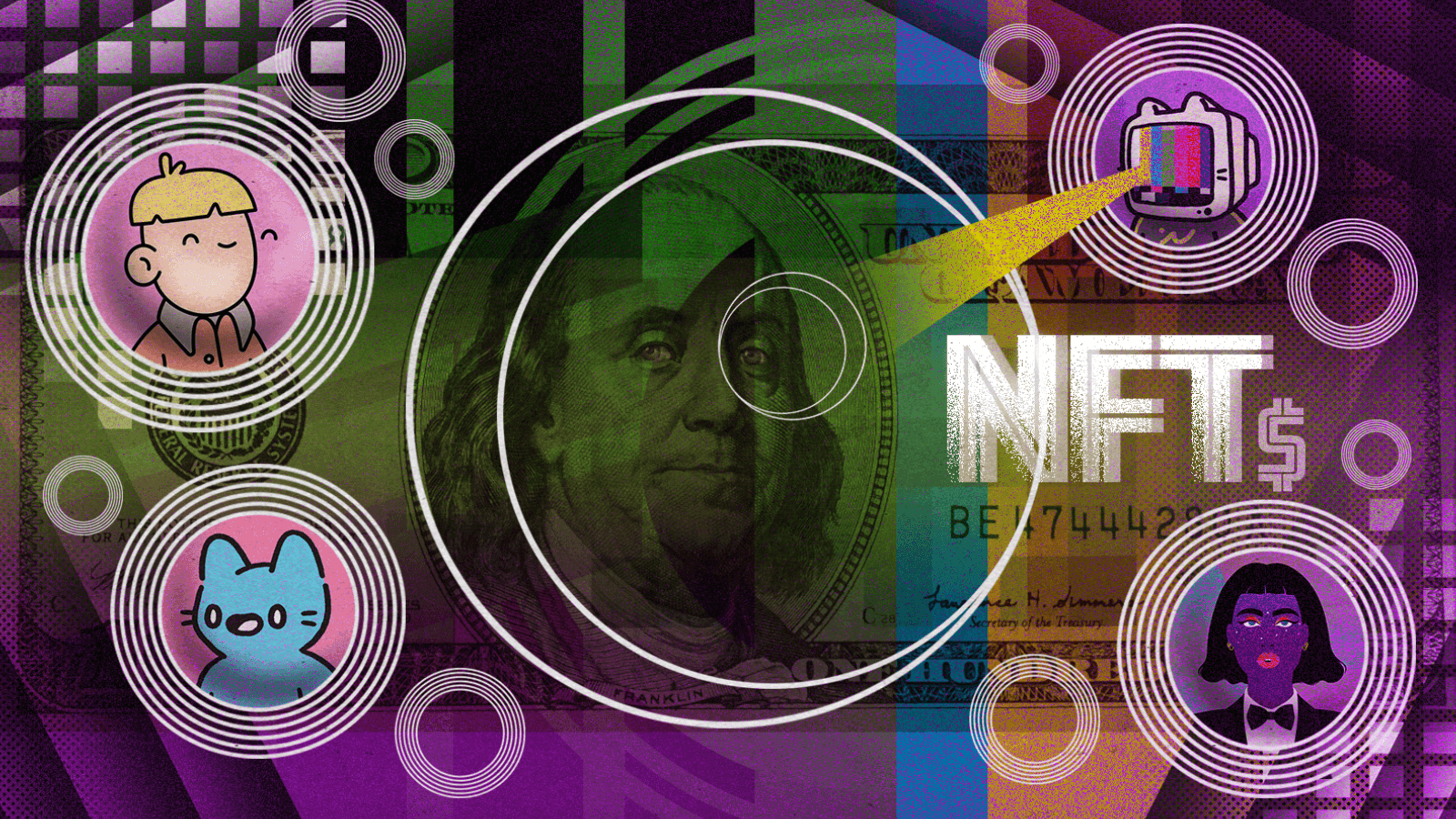Solving NFTs’ ‘Liquidity Problem’: Can Financialization Help?
Trading volumes are way up, but experts say new financial primitives are needed to take NFTs to the next level

Blockworks Exclusive Art by Axel Rangel
- NFT financialization verticals include: lending, fractionalization, rental, pricing and aggregation
- NFT-backed loans could “allow people more flexibility with how they use their capital,” Arca portfolio manager Sasha Fleyshman told Blockworks
Rising sales volumes and adoption is the prevailing NFT market trend. But behind the explosive growth lies a bottleneck in the nascent space, which industry participants such as Matrixport Ventures’ Daniel Yan say could be alleviated by new financial layers.
Large brands such as Nike, Adidas and Louis Vuitton are jumping in on the blockchain-based collectibles trend, and the number of NFT (non-fungible token) buyers hit an all-time high of 895,000, according to data tracker CryptoSlam. But that’s not the whole story, Yan told Blockworks.
“When we talk about growth in the NFT market, we’re talking about the trading volume in marketplaces, primarily OpenSea,” Yan said.
“Volumes are substantially higher [than a year ago], but what is not really growing concurrently with this is liquidity of NFTs.”
Take CryptoPunks. There are about 10,000 on the peer-to-peer market, each with its own price. “It’s pretty difficult to aggregate that liquidity,” he noted.
NFT financialization verticals such as lending, fractionalization, rentals, pricing and aggregation of the assets could help solve this, according to a recent report from digital asset firm Matrixport.
Peer-to-peer NFT lending platforms and liquidity providers include NFTfi, Arcade and MetaStreet. Since 2020, NFTfi has underwritten more than 5,000 loans and recorded $80 million in cumulative loan volume, per the report.
Arca portfolio manager Sasha Fleyshman told Blockworks that NFT-backed loans could “allow people more flexibility with how they use their capital.”
Such loans, according to Fleyshman, could help people access the value of assets that have sharply appreciated but without selling them and potentially triggering taxable events. Many also become attached to their NFTs and don’t want to part with them.
Last week, MetaStreet and NFTfi facilitated the largest NFT-backed loan at $8.32 million for 104 CryptoPunks. The loan has a 10% interest rate (APR) with a 90-day duration, Blockworks exclusively reported.
Nexo, a major crypto lender, also announced it was launching an NFT-backed lending desk last year. The service, however, accepts only blue-chip collections such as Bored Ape Yacht Club (BAYC) and CryptoPunks right now.
Although industry participants are quickly exploring more financial layers of the asset class, NFT-backed lending makes up less than 1% of its total addressable market (TAM).
“The first step along that path is finding a solid baseline in the derivatives markets, which has been worked on right now — fungible representations of collections,” Fleyshman said. “And as that market expands — typically it’s 5 to 10 times bigger than spot markets…and solidifies, we’ll have a more liquid observable price, which protects the lending desks, which then allows them to offer more attractive rates.”
That, Fleyshman expects, will bring in more buyers.
Get the news in your inbox. Explore Blockworks newsletters:
- The Breakdown: Decoding crypto and the markets. Daily.
- 0xResearch: Alpha in your inbox. Think like an analyst.






